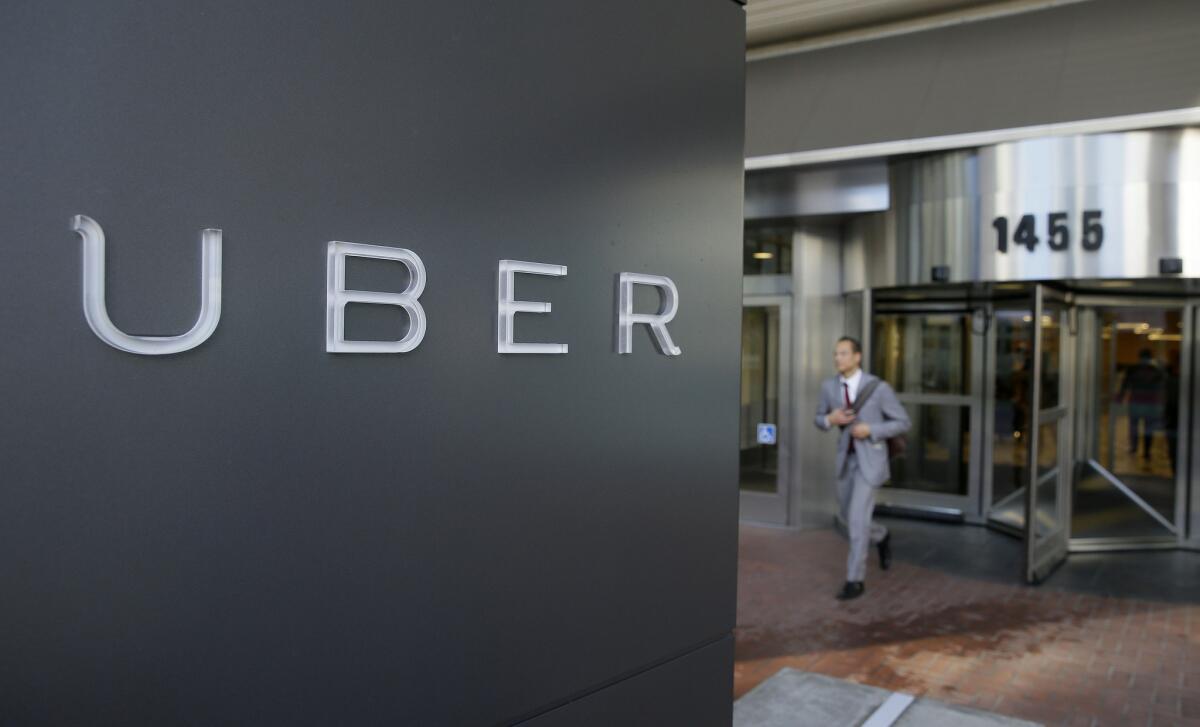Uber launches St. Louis ride-hailing service, files lawsuit

Uber launched its ride-hailing service in St. Louis and simultaneously sued local taxicab regulators for allegedly trying to block it on Friday.
- Share via
Uber muscled its popular ride-hailing service into the St. Louis market Friday without the blessings of local taxicab regulators, whom Uber simultaneously sued for allegedly trying to block it and the competition it brings.
Until the Metropolitan Taxicab Commission’s 7-1 vote allowing Uber, the company had claimed St. Louis was the nation’s biggest metropolitan area without the service.
But the commission’s approval came with a caveat — that all would-be Uber drivers agree to be fingerprinted as part of a criminal background check that taxi drivers also must undergo. The San Francisco-based company has balked at such calls, insisting that the vetting it does for its drivers is “comprehensive” and sufficient.
Uber’s antitrust lawsuit, filed in federal court, calls the commission a “cartel,” blames the commission for stifling Uber’s entry into the St. Louis market and seeks a temporary restraining order that allows the service to operate without any commission intrusion for two weeks.
An attorney for the commission countered Friday that “we have done everything we can do to open the door to these guys within the limits of the law, and I don’t think they were ever bargaining in good faith.”
SIGN UP for the free California Inc. business newsletter >>
Ride-hailing services including Uber use smartphone apps such as Uber’s “uberX” for riders to book and pay for a private shuttling by drivers who use their own vehicles. Traditional cab drivers have complained that such services siphon off passengers and profits, dramatically cutting their ability to earn a living.
“As Uber attempted to comply with the MTC’s ever-higher hurdles to uberX’s launch ... the MTC simply constructed newer, more onerous barriers to entry,” the lawsuit said. “The MTC’s pretext for these barriers to entry was ‘public safety,’ but the true purpose of the MTC’s conduct was to bar entry by Uber” and other competitors to traditional taxis.
Commission attorney Neil Bruntrager said the panel’s conduct has been within the law.
“All we’ve done with fingerprinting is absolutely within our jurisdiction,” he said.
MORE FROM BUSINESS:
UFW wins key ruling in decades-long fight with grower
California posts solid jobs growth; unemployment rate falls to 6.1%
VW could face $18-billion fine for evading smog rules, cheating pollution tests
More to Read
Inside the business of entertainment
The Wide Shot brings you news, analysis and insights on everything from streaming wars to production — and what it all means for the future.
You may occasionally receive promotional content from the Los Angeles Times.










